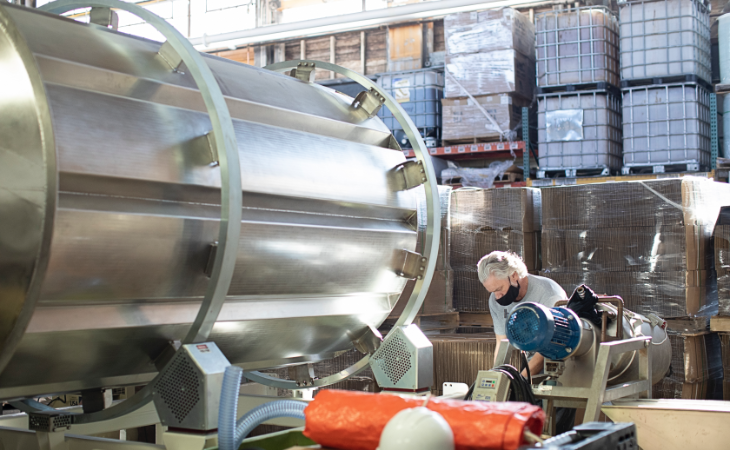Upcycling company adding value to spent grain from brewers, distillers


Forgive the pun, but serial entrepreneur Sue Marshall is now a cereal entrepreneur. The Minnesota native is breaking grains ground with NETZRO, SBC—the company she founded in 2015 to address waste in food and beverage manufacturing. (SBC stands for Specified Benefit Corporation—a certification they're proud to carry.)
NETZRO captures nutritious, usable ingredients from byproducts, transforming things like egg shells, food scraps and, most exciting for this audience, spent grains from the brewing and distilling industry. These grains are referred to as “spent” because the carbohydrates are consumed during fermentation, but there’s still a lot that remains, such as protein and fiber.
Fermented beverages like beer and spirits use tons of grain, which means brewers and distillers have to coordinate disposal of spent grain just as surely as they have to figure out how to bottle and distribute their products. Because of the volume of spent grain, this project often requires a diversified disposal strategy.
Beverage makers identify farmers to fetch some of the spent grains to feed to livestock, work with local artisans who can use spent grain in soaps or other products, or simply haul the waste for garbage or compost. Your favorite brew pub might give some of their spent grains to your favorite bakery, and maybe you snack on pretzels that link the two businesses. But there’s not a simple, scalable way to translate spent grains—sticky, perishable, nutritious—into bread, or bakeries and breweries would often be two parts of the same enterprise. That’s where NETZRO steps in, gathering the valuable scraps, and using technology to kiln the beverage remnants and stabilize them for use as a nutrient-packed flour.
“March 1st, we gave six chefs spent grains—corn, wheat, barley and rye—both coarsely ground and milled into flour, and let them run with it,” Marshall said, recalling their "Too Good To Waste" event that embodied what she misses in the pandemic-forced reorganization of our lives (see video above for more on that). Yet new opportunities to kindle creativity and engagement emerged. NETZRO shifted gears from focusing on business to business ingredient connections and made a product geared for consumers: a blend combining fresh milled flour from Baker's Field Flour and Bread with spent grains. In April, the flour hit farmers’ markets and grocers, and, of course, online sales platforms.

This product is only one part of the broad solutions NETZRO is pursuing. The company is also working on capturing the collagen from egg shells as another ingredient. Marshall and NETZRO recently helped organize the newly minted Twin Cities Spent Grain (TCSG) Cooperative to handle the waste stream of craft beverages efficiently and appropriately. This is the first in what could be a city by city network of collaborations to help funnel the remnants of the brewing and distilling processes into the upcycling movement. NETZRO is welcoming farmers to join the TCSG Co-op, which will get them a substantial discount on the spent grain animal feed currently being developed with AURI (Agricultural Utilization Research Institute).
Big picture thinking is required in upcycling food, and while the technology each upcycling company uses is highly guarded, the field is very collaborative. Sue Marshall and peer businesses are helping the movement advance and become an industry; eight companies formed the Upcycled Food Association in October of 2019, and now there are 100 members. Keep your eyes on upcyclers like NETZRO—find them at the links below.
